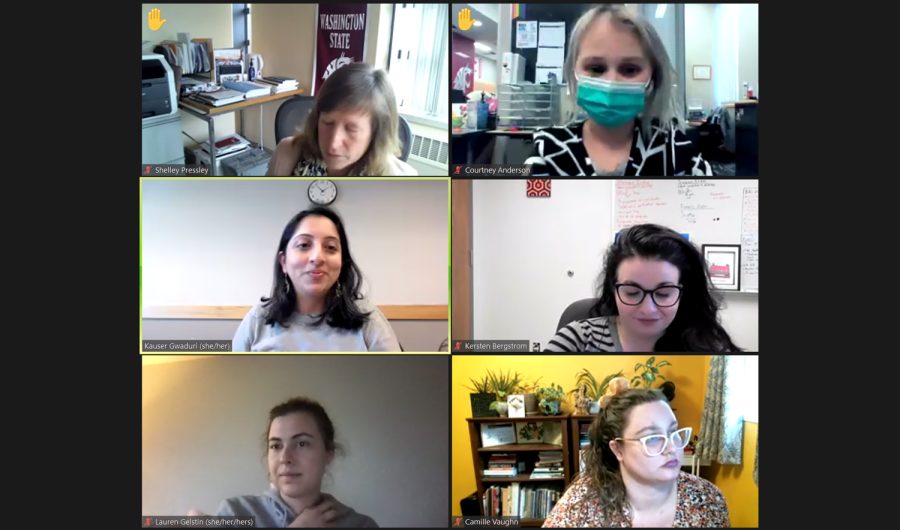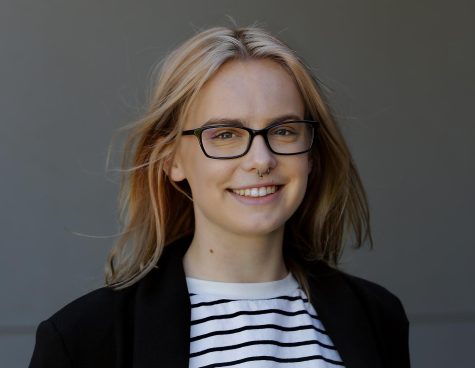MLK Program focuses on white privilege for first event of the semester
Participants viewed ***NFL player’s*** Youtube series ‘Uncomfortable Conversations’
WSU’s MLK Program is planning several more events throughout the semester.
January 21, 2022
Attendees of WSU’s MLK Program event watched the 10th episode of former NFL player Emmanuel Acho’s “Uncomfortable Conversations with a Black Man” on Youtube, featuring comedian Chelsea Handler.
Thursday’s Zoom meeting marked the first of the semester for the program, with subsequent meetings scheduled in the coming months.
In the episode, Acho and Handler discussed Handler’s white privilege and her awareness of how that privilege impacts her life. As a comedian, Handler said she has to think about her audience when she gets on stage.
“It’s my job to not be offensive,” she said. “I don’t think you could ever ask somebody to not be offended.”
Handler said while filming a show once, she had an interaction with a Black woman on the first day of set.
The woman sang a song, and Handler hugged her afterward with good intentions, she said.
“Then I smacked her on the ass,” Handler said. “I got a call from Netflix, and they told me I had to go to sexual harassment training … They said I had to call this woman; she was really offended.”
Handler said when she got the call, she was confused about what she had done wrong before talking to the woman because she is straight and did not act with inappropriate intentions.
“[The woman] said to me, Black women have been defined by their hair and their asses since the beginning of time,” Handler said. “She explained to me it’s not about my intention, which was innocent. It’s about her reception.”
Handler said in therapy, she talked a lot about self-awareness. On the topic of white privilege, she had the realization that she was an elitist.
She moved around a lot and was an elitist because she was trying to become one, she said.
“I got rewarded for my bad behavior repeatedly,” Handler said. “My first book was called ‘My Horizontal Life: A Collection of One-Night Stands.’”
When Handler started to look at the world outside of herself, she said she was able to realize her experience was not the same one everyone else was having.
On one of her TV shows, Handler said she was doing things a person of color would not have been able to get away with.
“I’m calling people out, going off on people, joking about drinking, and sleeping around and doing drugs,” Handler said. “No Black girl was going to get away with what I got away with.”
Growing up, Handler always knew if the police were called, they were going to protect her, she said.
She never thought about what it would be like to be a Black woman in trouble and need to think twice about calling the police, she said.
“I’m the beneficiary of a ton of privilege,” she said.
Handler always thought white privilege meant white people who grew up with money or people from a legacy family, she said.
She was under the impression if someone was the rich, the best or in the top 1%, then they would be privileged, she said.
“I didn’t understand … the advantage of going into a grocery store, if I want to take some candy and eat it while I’m walking down the aisle, not gonna be a problem,” she said. “No one is going to say anything to me.”
Handler said she had a lot of entitlement in the past because she grew up as a product of her own culture.
When she got pulled over by a police officer, she would argue with them and tell them they had no right to pull her over without worrying about any consequences, she said.
“White privilege doesn’t mean you don’t work hard or that you’re not working multiple jobs or that you haven’t had an easy life or that you’ve only had an easy life,” Handler said.
















